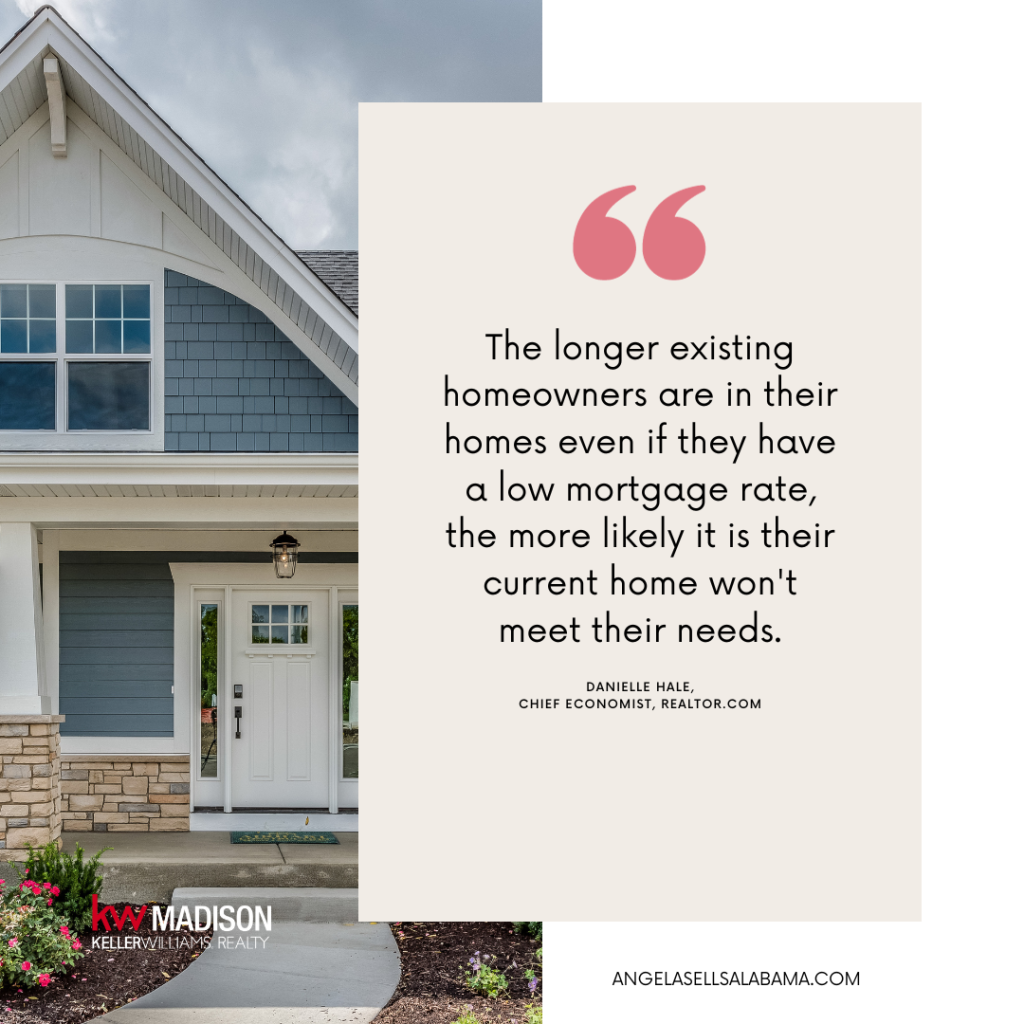For many homeowners, the thought of moving can be a daunting one. After all, your home is not just a financial investment; it’s a place filled with memories and a reflection of your personal style. Additionally, if you have a low mortgage rate, it might seem financially advantageous to stay in your current home. However, as Danielle Hale, Chief Economist at Realtor.com, suggests, there’s an important aspect to consider

The Comfort of Familiarity
One of the primary reasons homeowners choose to stay in their homes for extended periods is the comfort of familiarity. Over the years, you’ve grown attached to your neighborhood, made friends, and become a part of the community. Your home holds sentimental value, and it’s where you’ve built a life.
Low Mortgage Rates and Financial Considerations
Low mortgage rates are an enticing factor that can encourage homeowners to stay put. These rates make monthly payments more affordable, which can be especially appealing. However, while it may make sense financially, it’s crucial to assess whether your current home still aligns with your lifestyle and needs.
Evolving Needs Over Time
As life progresses, your needs and preferences may change. A home that once suited your lifestyle perfectly may no longer do so. Factors such as a growing family, changing work arrangements, or a desire for a different environment can all impact your housing needs.
Evaluating Your Current Home
To determine whether your current home meets your needs, consider the following:
- Space: Is your home spacious enough to accommodate your family’s needs and activities comfortably?
- Location: Does your neighborhood still offer the amenities, schools, and accessibility you desire?
- Maintenance: Are maintenance and repairs becoming frequent and costly? Would a newer home be more energy-efficient and require fewer repairs?
- Lifestyle: Does your current home support your desired lifestyle and daily routines?
The Decision to Stay or Move
Ultimately, the decision to stay in your current home or move to a new one is a deeply personal one. It involves evaluating not only the financial aspects but also the emotional and practical factors. If you find that your current home no longer aligns with your needs, it might be time to explore the possibilities of a new home.
Conclusion
While staying in your existing home can have many advantages, including low mortgage rates and the comfort of familiarity, it’s essential to regularly assess whether your home continues to meet your evolving needs. As Danielle Hale suggests, homeowners should strike a balance between the financial benefits of low mortgage rates and the practicality of a home that suits their current lifestyle. The decision to move can be a significant one, but it’s an opportunity to find a place that truly meets your needs and enhances your quality of life.

